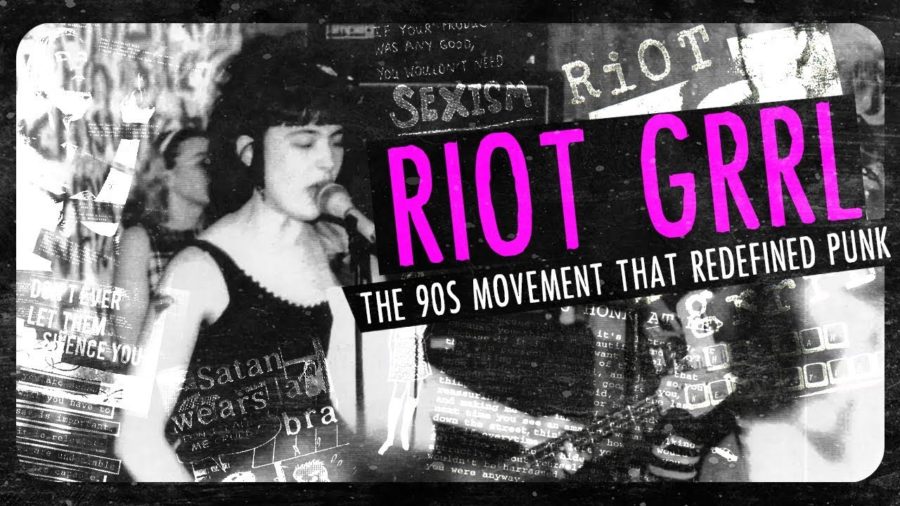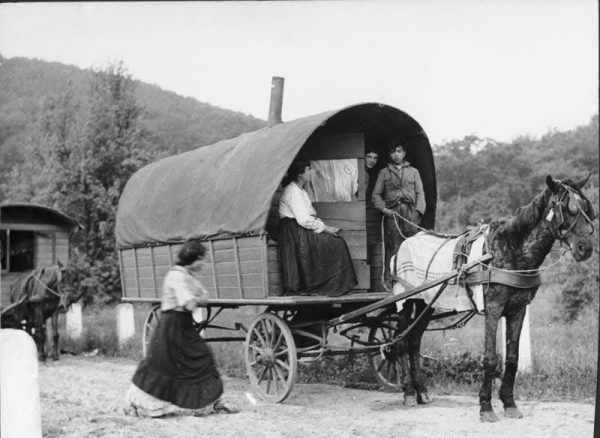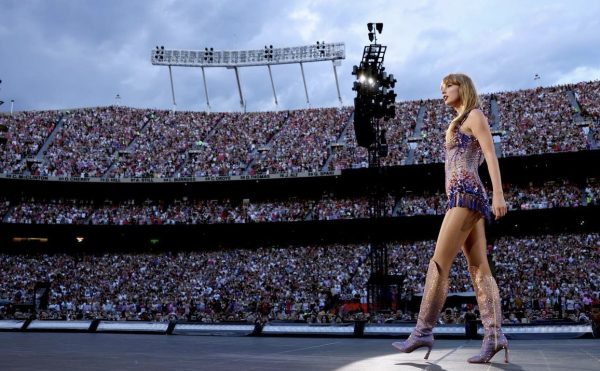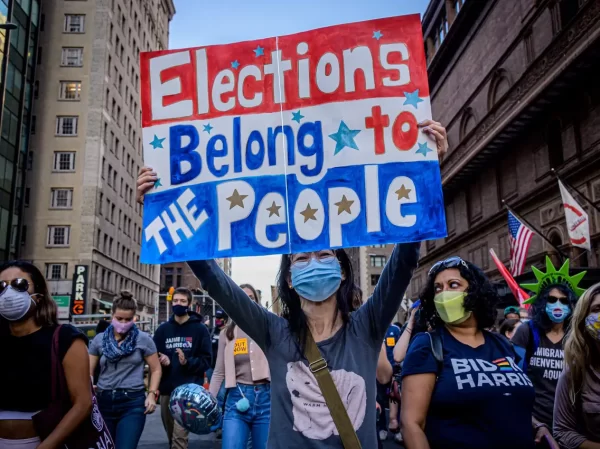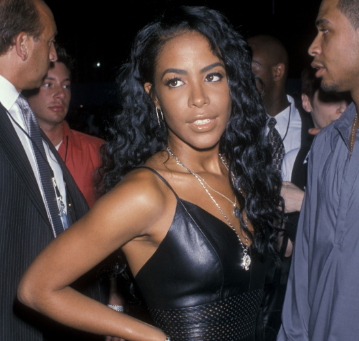Seattle’s Riotgrrrl Roots
Under heavy rainfall and gray skies, a musical storm was brewing in the ‘90s Pacific Northwest. 1990s Seattleites’ spirit of rebellion and restlessness powered a surge of musical experimentation. Known as the “Seattle Sound,” flannel-clad grunge bands (notably, Nirvana) dominated the underground music scene. Characterized by gritty vocals and defiant attitudes, Seattle punk defined a generation, becoming a counterculture movement that merged rock ‘n’ roll with fierce social protest. In the chaos of guitar riffs, sweaty venues, and untamed hair, male musicians almost always took center stage.
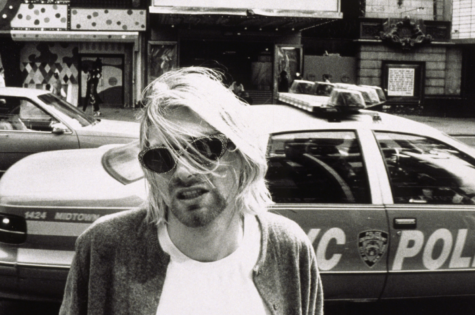
Despite the outward appearance of progressivism in the Seattle music scene, women faced ongoing sexism. Female musicians faced sexual harassment during shows and were not taken seriously as artists. In media, punk women were frequently funneled into one identity that failed to celebrate their varied individuality, approach to feminism, and musical styles. Lists such as “The Top 11 Hottest Women in Grunge” were splashed across editorials. Capitalizing on their appearances, male media moguls and musicians alike undervalued the musical contributions of female punk rockers. If not exploited for looks, female musicians such as Courtney Love were often recognized only by their relation to famous men. In her article, “Punk has a problem with women. Why?” writer Charlotte Richardson Andrews remarks on the exclusion that emerged in 1990s underground punk: “Punk started out as an inclusive and diverse movement, but was quickly annexed by white dudes. Women have had to fight for space and recognition in punk ever since.” While bands such as Alice in Chains and Pearl Jam cemented their loud legacies by attracting national attention, all-female bands were pushed to the sidelines.
Enraged and ready to make waves, women across Washington state took action. The Riotgrrrl Movement emerged in 90s Olympia as feminists gathered, determined to create alternative spaces for radical female self-expression through music, advocacy, and art. Riotgrrrl’s spelling with “rrr” was intentional, an attempt to reclaim the derogatory use of the word “girl” and mimic a growling sound, reflecting the movement’s emphasis on expressing female anger with unabashed confidence. Carving out a community for female empowerment, the Riotgrrrl movement gained momentum with the
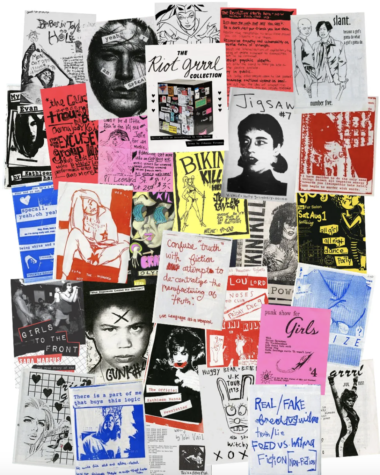
spread of fanzines (small-circulated and self-published creative pamphlets) that took a stand against the sexism prevalent in the punk scene through D.I.Y. (do-it-yourself) art. Fanzines often consisted of firsthand accounts, poems, and drawings of experiences with domestic abuse, sexual assault, body-image issues, homophobia, and more. In an age without Twitter or Instagram, these fanzines acted as conduits for Riotgrrrl advocacy, raising awareness of significant social issues across the West Coast.
Enter Kathleen Hanna, a student at Evergreen State College and soon-to-be icon of the Riotgrrl movement. Hanna formed the Bikini Kill Zine, a platform for her self-expression and the home of the 1991 Riotgrrl Manifesto: a manifesto that rallied Riotgrrrl enthusiasts and unified the movement in a cohesive vision of feminism, anti-Capitalist political action, and rebellion against social norms. It reads, “Us girls crave records and books and fanzines that speak to US that WE feel included in…we are angry at a society that tells us Girl = Dumb, Girl = Bad, Girl = Weak.” Hanna went on to form the band Bikini Kill, named after her zine, and create the belting Riotgrrrl anthem “Rebel Girl.” As Bikini Kill built its fearless fanbase of young women across The Pacific Northwest, dozens of other female-fronted bands such as Bratmobile and Le Tigre did the same, bringing new female voices to the industry. At a Bikini Kill show, Kathleen Hanna famously shouted, “girls to the front!” – causing a surge of women to emerge from the back of the venue and find a space within the male-dominated punk bands of the “Seattle Sound.”
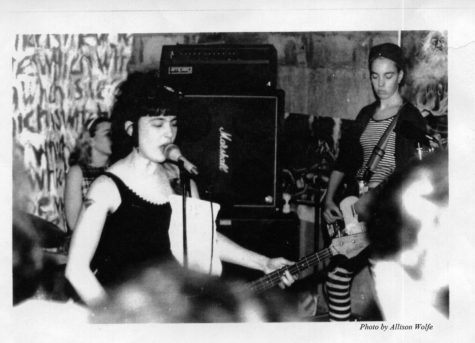
Despite Hanna’s founding intention of inclusivity, the Riotgrrl movement has received criticism for being exclusionary, centering the experiences of middle-class white women. Riotgrrrl lyrics and zines often glossed over, or outright neglected, issues of racism in American society. By emphasizing narratives with surface-level rallying cries for “girl power!” instead of considering feminism through an intersectional lens, Riotgrrl alienated women of color. Zine-author Mimi Thi Nguyen asked, “But how then could experience yield revolutionary knowledge about race, where the dominant experience was whiteness?” The movement also had a tendency to discriminate against women who didn’t fit Riotgrrl’s unconventional, though narrow, definitions of womanhood. Though all-inclusive Riotgrrl communities formed their own spaces in Seattle, “women-only” shows in mainstream Riotgrrl continued to regularly discriminate. Julia Downes writes in her paper, The Expansion of Punk Rock, that “The ‘check your gender on the door’ policy caused problems… enforcing an essentialist model of gender that discriminated against queer gender presentations…” (Downes, 232). While Riotgrrl built the foundations for female punk, the movement’s flaws have also informed modern-day feminist musicians by demonstrating the importance of intersectionality and diversity in feminist advocacy.
However short-lived, the influence of the Riotgrrrl Movement on punk and feminist thought cannot be understated. Riotgrrrl built one of the first movements in the U.S. specifically designed to center female talent and emotion, in all of its unapologetic joy and anger, while not pandering to male audiences. It gave young women in the Pacific Northwest platforms for self-expression on punk stages and within the pages of fiery zines, making feminist discourse accessible within music venues. Its influence can be felt today in the presence of feminist messaging in music through bands such as The Regrettes, Girlpool, Dream Wife, and Sharp Violet to name a few. The Billboard article “Can Riot Grrrl TikTok Re-Imagine a Flawed Scene” reads, “Having grown up amid late-stage capitalism and impending climate disaster, the riot grrrl ethos chimes with the growing sense among Gen Z that they can’t afford political apathy.” Riotgrrl’s radical ideals and spirit of social defiance have transcended sub-culture status, becoming a staple of punk and spreading a message on equality, self-expression, and creativity that remains relevant today.



